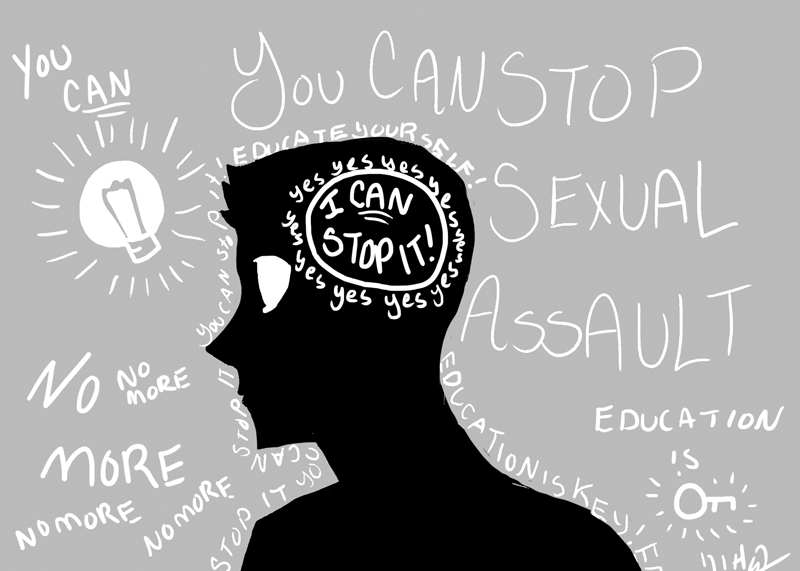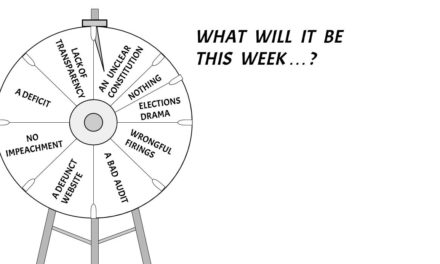Regular Slate magazine contributor Emily Yoffe recently published an article titled “College Women: Stop Getting Drunk.” The article is a dissection of sexual assault and its connection with binge drinking on college campuses. Yoffe makes the argument that although the perpetrators of assault bear the full responsibility of their crimes, society is “failing to let women know that when they render themselves defenseless, terrible things can be done to them.”
In this case, Yoffe considers binge drinking among women to be an approach towards defenselessness.
Within hours of its release, the article sparked widespread controversy across the internet, and critics attacked her article for promoting rape culture.
Critics argued Yoffee mistakenly addresses women on how to guard themselves from assault, when she should be addressing the general populous on why a culture that promotes assault is dangerous.
After responses flooded in, Yoffe published an article in which she responds to her critics and defensively elaborates on her arguments.
She does not redact any of her findings and she affirms her piece as an open contribution to the public dialogue about sexual assault: “My story churned up a lot of outrage, but I remain hopeful that it will start some conversations and prevent at least some sexual assaults.”
The conversations have indeed started, but what is truly important is what we can learn from Yoffe’s article about the way we discuss sexual assault.
Discussing issues where people have been victimized is both challenging and polarizing. Yoffe made a very strong association between alcohol and sexual assault and then suggested that taking alcohol out of the equation would lower the number of assaults. The way she chose to address women as potential victims is what rendered the significant backlash. The cascade of criticism created a contrast between “teaching women to protect against assault,” and “teaching society that assault needs to stop.” The way Yoffe framed her article laid the groundwork for this juxtaposition; however, these are two ideas that can be simultaneously promulgated without discrediting victims or promoting rape culture.
Yoffe defended her article so ardently because she felt she was advocating for women’s safety. The approach towards having women behave in a specific way in order to fend off sexual assault, however imposing, is still an attempt at promoting safety. The approach towards having society behave differently is more geared towards advocating for a shift in cultural mindset. These two causes are not differing vantage points but rather two shades of the same argument: sexual assault needs to stop. If we want to approach this long-term goal as a society, then we must certainly be addressing the general population.
Kids should be educated appropriately throughout their levels of education so they can become fully aware of terms like assault, consent and violence. Properly educating the youth is the most effective way to plant a seed for a change in morals. If these efforts are successful, then ideally we will have a future in which sexual assault is seen as the heinous crime it is rather than something that “just happens.”
However, while we work to inculcate the moral code of tomorrow, we still have to deal with the harsh realities of today. Contrary to Yoffe’s article, the way to deal with these realities is not by instructing women to stop drinking alcohol.
A more effective way to decrease the number of sexual assaults in the short term is to dramatically infuse the negativity of such actions into daily conversation.
Increasing the prominence of assault discussion on college campuses further ostracizes those who have committed offenses and makes potential victims more aware. Harsher penalties for offenders and consciousness of the severity of such issues will also stop an increase in awareness.
Yoffe is right that self-consciousness about how college students conduct themselves in social environments could definitely lead to a lower number of sexual assaults. However, asking potential victims to change their lifestyles to accommodate the offenders is a step in the wrong direction. We have the ability to influence the future of how we discuss assault while simultaneously decreasing the number of assaults currently. The first step is to start talking about it: seriously, maturely and constantly.
People of all ages, all over the world need to be aware of how prominent an issue this is and how we can work towards eradicating it rather than just attending to it as an unchangeable reality.
Robert Weisblatt is a College junior from Belle Mead, N.J.
If you or someone you know has been affected by sexual violence, you have support at Emory. Please contact Lauren (LB) Bernstein, Assistant Director for the Respect Program at 404.727.1514 or respect@emory.edu for confidential support. You can also learn more about the Respect Program at respect.emory.edu.
Illustration by Mariana Hernandez
The Emory Wheel was founded in 1919 and is currently the only independent, student-run newspaper of Emory University. The Wheel publishes weekly on Wednesdays during the academic year, except during University holidays and scheduled publication intermissions.
The Wheel is financially and editorially independent from the University. All of its content is generated by the Wheel’s more than 100 student staff members and contributing writers, and its printing costs are covered by profits from self-generated advertising sales.






